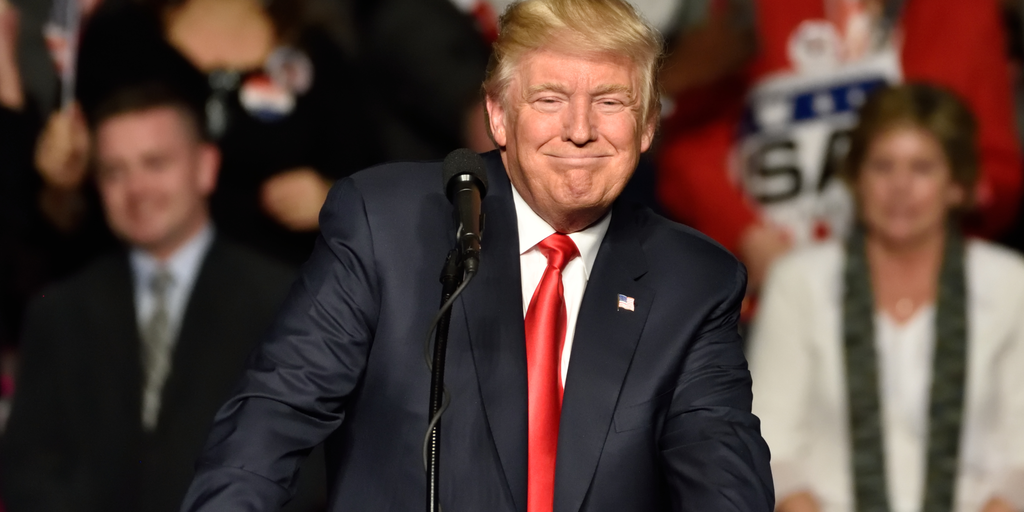How DeFi Platforms Like Ethena, Arbitrum, and Uniswap Adapt to Regulatory Changes Post-Trump Victory

Following the recent political shifts surrounding the election results of Donald Trump's victory, which might bring a renewed focus on cryptocurrency regulations, DeFi giants like Ethena, Arbitrum, and Uniswap are now at a crossroads.
These platforms are now contemplating changes to their fee structures based on potentially positive forthcoming regulations. Let's look at what this could mean for the broader DeFi ecosystem.
The Political Context and DeFi
The election of Donald Trump, known for his ambivalent yet impactful stance on cryptocurrencies, has reignited discussions around the regulation of digital assets. During his campaign, Trump's rhetoric oscillated between skepticism and a somewhat supportive tone towards cryptocurrencies, which has left many in the DeFi sector in a state of flux. His potential policies could either foster an environment conducive to DeFi innovation or tighten the regulatory screws, affecting how platforms operate, especially in terms of transaction fees.
The sentiment has been somewhat bullish, with memes of Trump's son Barron telling his father, "send it to $100K."
Father, send it to $100K 🚀 pic.twitter.com/lor2Bq50TC
— DΛVID (@DavidShares) November 11, 2024
Ethena's Strategic Reassessment
Ethena, a prominent DeFi protocol known for its synthetic dollar, USDe, has always prided itself on its adaptability. Post-election, Ethena's leadership is reportedly considering a pivot in its fee structure. Traditionally, Ethena has maintained a competitive edge with low transaction fees, which has been crucial for its user base, especially traders who rely on frequent and low-cost transactions. However, with the looming possibility of regulatory changes, Ethena might introduce dynamic fee models. These could potentially adjust based on network congestion or regulatory demands, aiming to balance user experience with compliance.
Arbitrum's Response
Arbitrum, an Ethereum layer 2 scaling solution, has been instrumental in reducing costs and increasing transaction speeds on Ethereum's network. The platform's fee structure is inherently tied to Ethereum's gas fees, but with the political climate shifting, Arbitrum might explore more autonomous fee mechanisms. Discussions within Arbitrum's governance forums suggest a potential shift towards a model where fees could be partially used to fund regulatory compliance, ensuring the platform remains both efficient and legally sound in a potentially stricter regulatory environment.
Uniswap's Proactive Measures
Uniswap, the leading decentralized exchange, has historically operated on a straightforward fee model, benefiting from Ethereum's network for transaction processing. However, with regulatory landscapes potentially becoming more stringent, Uniswap has started exploring fee switches. This involves toggling between fixed and variable fee rates or even introducing governance proposals that allow the community to decide on fee adjustments in response to external pressures. This approach not only keeps Uniswap agile but also involves its community in pivotal decision-making processes, reinforcing its decentralized ethos.
The Broader Impact on DeFi
The contemplation of fee adjustments by these platforms isn't just about compliance or profit maximization; it's a reflection of DeFi's maturity. These platforms are not merely reacting to political changes but are actively engaging with the broader implications for their users and the ecosystem:
User Experience: Fee changes could either enhance or detract from user experience. Lower, more dynamic fees could attract more users, but if used to fund regulatory compliance, they might also increase costs in subtle ways, affecting smaller traders the most.
Market Dynamics: Any shift in fee structures could influence the liquidity and arbitrage opportunities within DeFi. Platforms that manage to keep fees low while ensuring compliance might capture more market share.
Regulatory Compliance: This aspect becomes particularly critical. Platforms like Ethena, Arbitrum, and Uniswap need to navigate through compliance without stifling the innovation that has made DeFi appealing.
A Delicate Balance
As DeFi platforms like Ethena, Arbitrum, and Uniswap ponder over their fee structures in light of political changes, they stand at a crossroads of innovation versus regulation. The decisions they make will not only shape their future but could set precedents for how DeFi interacts with traditional finance and regulatory frameworks. In this new era, the challenge lies in maintaining the decentralized, user-centric ethos of DeFi while adapting to an environment where regulatory oversight might become more pronounced. The agility shown by these platforms in responding to these changes will be crucial in defining the next chapter of decentralized finance.

